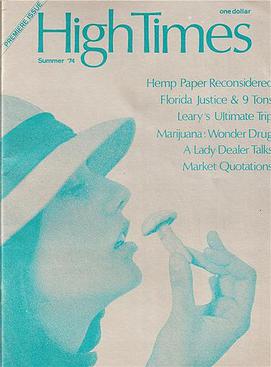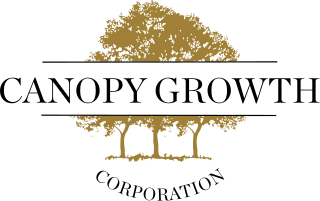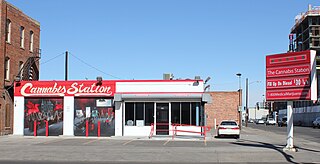
The legality of cannabis for medical and recreational use varies by country, in terms of its possession, distribution, and cultivation, and how it can be consumed and what medical conditions it can be used for. These policies in most countries are regulated by three United Nations treaties: the 1961 Single Convention on Narcotic Drugs, the 1971 Convention on Psychotropic Substances, and the 1988 Convention Against Illicit Traffic in Narcotic Drugs and Psychotropic Substances. Cannabis was reclassified in 2020 to a Schedule I-only drug under the Single Convention treaty, with the schedules from strictest to least being IV, I, II, and III. As a Schedule I drug under the treaty, countries can allow the medical use of cannabis but it is considered to be an addictive drug with a serious risk of abuse.

A head shop is a retail outlet specializing in paraphernalia used for consumption of cannabis and tobacco and items related to cannabis culture and related countercultures. They emerged from the hippie counterculture in the late 1960s, and at that time, many of them had close ties to the anti-Vietnam War movement as well as groups in the marijuana legalization movement like LeMar, Amorphia, and the National Organization for the Reform of Marijuana Laws.

High Times is an American monthly magazine that advocates the legalization of cannabis as well as other counterculture ideas. The magazine was founded in 1974 by Tom Forcade. The magazine had its own book publishing division, High Times Books, and its own record label, High Times Records.

Cannabis, also known as marijuana or weed among other names, is a non-chemically uniform drug from the cannabis plant. Native to Central or South Asia, the cannabis plant has been used as a drug for both recreational and entheogenic purposes and in various traditional medicines for centuries. Tetrahydrocannabinol (THC) is the main psychoactive component of cannabis, which is one of the 483 known compounds in the plant, including at least 65 other cannabinoids, such as cannabidiol (CBD). Cannabis can be used by smoking, vaporizing, within food, or as an extract.
Lacing or cutting, in drug culture, refer to the act of using a substance to adulterate substances independent of the reason. The resulting substance is laced or cut.
Many urban legends and misconceptions about drugs have been created and circulated among young people and the general public, with varying degrees of veracity. These are commonly repeated by organizations which oppose all classified drug use, often causing the true effects and dangers of drugs to be misunderstood and less scrutinized. The most common subjects of such false beliefs are LSD, cannabis, and PCP. These misconceptions include misinformation about adulterants or other black market issues, as well as alleged effects of the pure substances.

Cannabis culture describes a social atmosphere or series of associated social behaviors that depends heavily upon cannabis consumption, particularly as an entheogen, recreational drug and medicine.

The use, sale, and possession of cannabis containing over 0.3% THC by dry weight in the United States, despite laws in many states permitting it under various circumstances, is illegal under federal law. As a Schedule I drug under the federal Controlled Substances Act (CSA) of 1970, cannabis containing over 0.3% THC by dry weight is considered to have "no accepted medical use" and a high potential for abuse and physical or psychological dependence. Cannabis use is illegal for any reason, with the exception of FDA-approved research programs. However, individual states have enacted legislation permitting exemptions for various uses, including medical, industrial, and recreational use.

In the United States, the use of cannabis for medical purposes is legal in 38 states, four out of five permanently inhabited U.S. territories, and the District of Columbia, as of March 2023. Ten other states have more restrictive laws limiting THC content, for the purpose of allowing access to products that are rich in cannabidiol (CBD), a non-psychoactive component of cannabis. There is significant variation in medical cannabis laws from state to state, including how it is produced and distributed, how it can be consumed, and what medical conditions it can be used for.

Cannabis in California has been legal for medical use since 1996, and for recreational use since late 2016. The state of California has been at the forefront of efforts to liberalize cannabis laws in the United States, beginning in 1972 with the nation's first ballot initiative attempting to legalize cannabis. Although it was unsuccessful, California would later become the first state to legalize medical cannabis through the Compassionate Use Act of 1996, which passed with 56% voter approval. In November 2016, California voters approved the Adult Use of Marijuana Act with 57% of the vote, which legalized the recreational use of cannabis.

Malawian cannabis, particularly the strain known as Malawi Gold, is internationally renowned as one of the finest sativa strains from Africa. According to a World Bank report it is among "the best and finest" marijuana strains in the world, generally regarded as one of the most potent psychoactive pure African sativas. The popularity of this variety has led to such a profound increase in marijuana tourism and economic profit in Malawi that Malawi Gold is listed as one of the three "Big C's" in Malawian exports: chambo, chombe (tea), and chamba (cannabis).

Canopy Growth Corporation, formerly Tweed Marijuana Inc., is a cannabis company based in Smiths Falls, Ontario.

Minors and the legality of cannabis is one of the issues around the legalisation of cannabis, with most jurisdictions placing strict age limits in a similar way as is done with the drinking age for alcohol.

Cannabis dispensaries in the United States or marijuana dispensaries are a type of cannabis retail outlet, local government-regulated physical location, typically inside a retail storefront or office building, in which a person can purchase cannabis and cannabis-related items for medical or recreational use.

Cannabis is legal in Illinois for both medical and recreational use. Illinois became the eleventh state in the US to legalize recreational marijuana effective January 1, 2020.

Cannabis in New Jersey is legal for both medical use and recreational use. An amendment to the state constitution legalizing cannabis became effective on January 1, 2021, and enabling legislation and related bills were signed into law by governor Phil Murphy on February 22, 2021.

Cannabis in South Africa has been decriminalized for personal adult consumption in private by the Constitutional Court of South Africa. However, laws still prohibit its use outside of one's private dwelling as well as the buying and selling of cannabis. Regulations prohibiting the purchase of cannabis-containing products remain in effect, raising questions about the enforceability of the ruling.
The use of cannabis in Belize is common and largely tolerated; however, possession can result in fines or imprisonment. Possession or use of 10 grams or less on private premises was decriminalized in November 2017.

Cannabis rights or marijuana rights are individual civil rights that vary by jurisdiction. The rights of people who consume cannabis include the right to be free from employment discrimination and housing discrimination.













